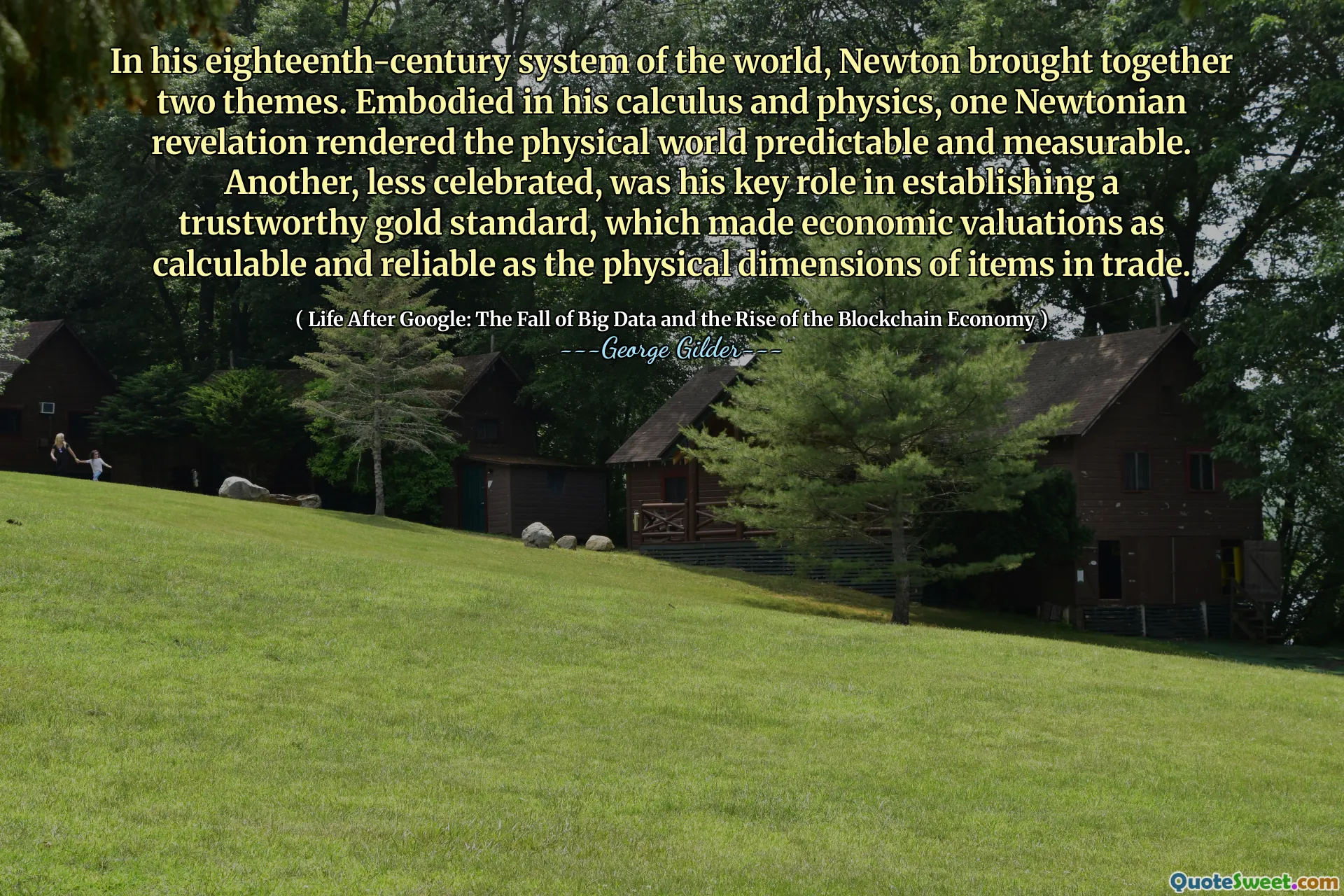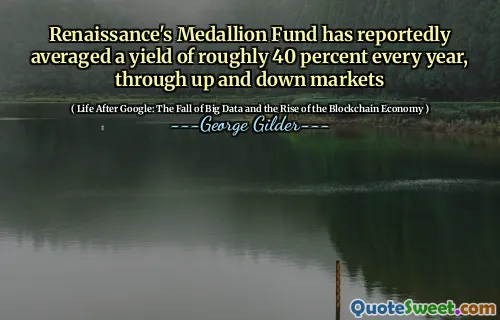
In his eighteenth-century system of the world, Newton brought together two themes. Embodied in his calculus and physics, one Newtonian revelation rendered the physical world predictable and measurable. Another, less celebrated, was his key role in establishing a trustworthy gold standard, which made economic valuations as calculable and reliable as the physical dimensions of items in trade.
Isaac Newton is chiefly celebrated for his monumental contributions to physics and mathematics, particularly his development of calculus and the laws of motion. This quote illuminates a dual legacy of Newton that extends beyond the physical sciences into the domain of economics—a dimension often overshadowed by his scientific achievements. The stark contrast presented between the generally celebrated predictability of the physical world, achieved through Newtonian mechanics, and the less heralded but equally crucial establishment of a reliable economic standard underlines a profound synergy between natural and economic order.
Newton’s role in reinforcing the gold standard signifies the bridging of abstract science with systemic economics, reinforcing reliability, stability, and predictability across very different fields. By doing so, he transformed economic valuation into something as exact and verifiable as physical dimensions—a concept revolutionary for its time. This not only framed economics in more scientific terms but also laid the groundwork for modern financial systems to trust standardized measures for value.
Reflecting on this from the lens of modern technological and economic shifts, especially those discussed in "Life After Google" by George Gilder, one can appreciate the historical foundation for trust and predictability extending to current explorations of trustlessness in blockchain technology. Thus, Newton's intertwined legacies represent more than just milestones of enlightenment; they pose guiding principles for balancing predictability with innovation in newly evolving economic paradigms.







